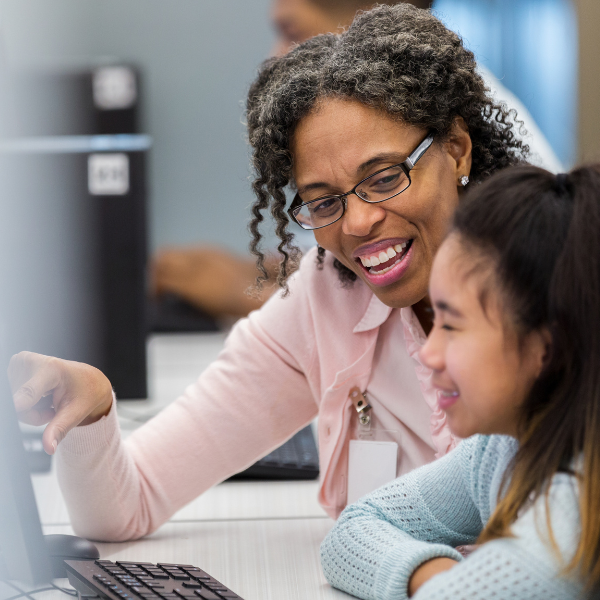The Learning Accelerator Blog/Sustaining Equitable Edtech Use: TLA and MA DESE Kick Off a New Peer Learning Cohort
Sustaining Equitable Edtech Use: TLA and MA DESE Kick Off a New Peer Learning Cohort
by Roshni Lakhi on November 2 2022

The unexpected and rapid switch to virtual learning during the pandemic led to a massive infusion of technology devices and online programs in school systems across the country. In the wake of this shift, education leaders and practitioners are now examining how to strengthen and develop edtech processes to sustain technology use and ensure that edtech is being integrated in a way that enhances student learning and supports district goals.
The Learning Accelerator (TLA) worked closely with the Massachusetts Department of Elementary & Secondary Education (MA DESE) over the past year to develop the state’s EdTech Systems Guide, an equity-driven resource that helps school leaders ensure that edtech is effectively chosen, powerfully implemented, and properly evaluated for effectiveness. After launching the guide, MA DESE selected nine districts/school systems to engage deeper in this work by examining how technology can be leveraged to support district priorities. In this new phase of work, TLA will collaborate with each district to tackle meaningful challenges by refining the use of specific technologies, centering digital equity, and showcasing best practices around technology integration in alignment with district goals.
The nine school systems selected for this cohort range from urban to rural districts, cover a wide geographic area from western Massachusetts to the greater Boston area, and include a diverse makeup of systems such as a single-site charter school and a collaborative task force comprised of eight districts in the Berkshires. The school systems participating in the cohort are:
The cohort kicked off in early October with a virtual convening that engaged teams in exploring their districts’ priorities and identifying problems of practice that will guide their work over the next year. Teams also created a “district lookbook” in which they shared the demographics and unique information about their district/school, along with their strengths and specific areas of focus for edtech. Teams voiced their appreciation for the opportunity to collaborate and learn from each other, as a few cohort members shared: “It was very interesting to hear from other districts about their challenges. Thank you for the opportunity to bring our schools together to have meaningful discussion and connection!”
Some of the resounding themes that surfaced during this kickoff session revolved around evaluating the impact and usage of online platforms (many of which were implemented during the pandemic), developing staff capacities in digital and media literacies, and engaging stakeholders to collect feedback and inform decision-making. District teams will collaborate over the next several months to work through these challenges together, as well as receive individualized, one-to-one support from TLA coaches. Many of the strategies, resources, and action plans that come out of this cohort work will be captured in case studies and blog posts, so we encourage you to follow the TLA Blog in the months ahead to stay up-to-date on news and releases from this exciting initiative.
 Exponential Learning Initiative
Exponential Learning Initiative